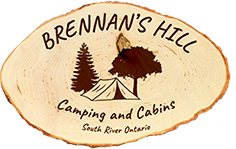Camping is a fantastic way for families to bond, enjoy the great outdoors, and create lasting memories. However, it’s essential to prioritize safety when embarking on a camping adventure with your loved ones. Whether you’re seasoned campers or new to the experience, these camping safety guidelines for families will help ensure a safe and enjoyable trip.
Choose a Suitable Campground
Before you head out, research and select a campground that suits your family’s needs and experience level. Look for reviews, check campground regulations, and consider factors like proximity to water sources, emergency services, and facilities like restrooms and showers.
Plan Ahead and Prepare
Proper planning can prevent many camping mishaps. Here are some key aspects to consider:
Check the Weather
Keep an eye on the weather forecast and be prepared for changing conditions. Pack clothing and gear appropriate for the expected weather.
Pack Essentials
Make a checklist of camping essentials, such as tents, sleeping bags, cooking equipment, first aid supplies, and insect repellent.
Food Safety
Plan your meals in advance and store food securely to avoid attracting wildlife. Use coolers and containers designed to keep animals out.
Leave No Trace
Teach your family about Leave No Trace principles, emphasizing the importance of leaving nature as you found it. Dispose of trash properly and minimize impact on the environment.
Set Up Camp Safely
Once you’ve arrived at your chosen campground, it’s time to set up camp:
Choose a Safe Location
Pick a level and well-drained campsite away from potential hazards like cliffs, dead trees, and areas prone to flooding.
Campfire Safety
If campfires are allowed, establish a safe fire ring or use a portable camp stove. Keep a bucket of water or a fire extinguisher nearby and never leave the fire unattended.
Secure Your Gear
Store food, trash, and scented items in bear-resistant containers or hang them high in a bear bag to prevent wildlife encounters.
Be Prepared for Emergencies
Safety is all about being prepared for the unexpected:
First Aid Kit
Carry a well-stocked first aid kit and know how to use it. Be prepared for minor injuries like cuts, insect bites, and burns.
Communication
Bring a charged cell phone or a satellite communicator, and make sure someone knows your itinerary and expected return date.
Know Basic Survival Skills
Learn basic navigation, knot-tying, and wilderness survival skills. Familiarize yourself with local flora and fauna, including potential dangers.
Stay Hydrated and Practice Food Safety
Staying healthy during your camping trip is vital:
Water Safety
Carry enough clean water or water purification equipment to ensure your family stays hydrated. Avoid drinking untreated water from natural sources.
Food Handling
Follow proper food handling and cooking techniques to prevent foodborne illnesses. Wash your hands and utensils regularly and cook food thoroughly.
Respect Wildlife and Nature
Appreciating the natural world is an integral part of camping:
Wildlife Encounters
Observe animals from a safe distance and never feed them. Keep food secure to avoid attracting wildlife to your campsite.
Plant Life
Respect the local flora by not trampling on plants and avoiding damage to trees.
Leave Campsite Better Than You Found It
Before leaving, ensure your campsite is clean and free of litter. Dispose of waste properly and follow campground rules for check-out.
By following these camping safety guidelines for families, you can create a memorable and safe outdoor adventure for your loved ones. Remember that safety should always be a top priority, allowing you to enjoy the wonders of nature while minimizing risks. Happy camping!










